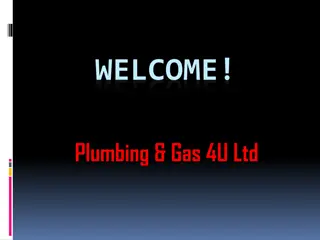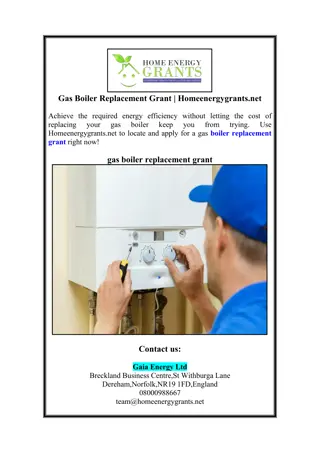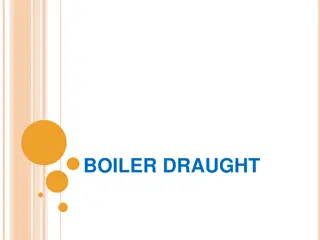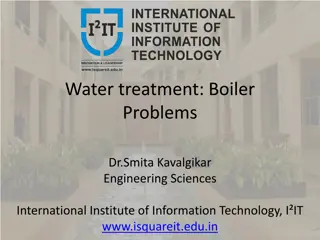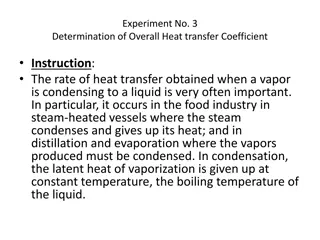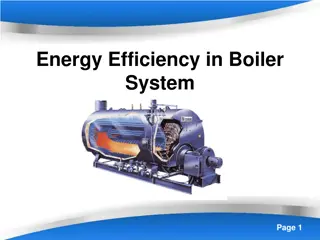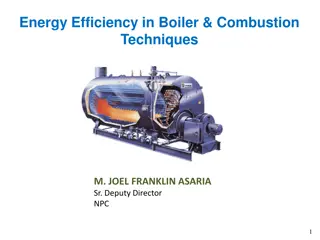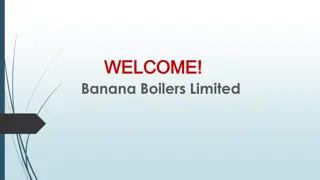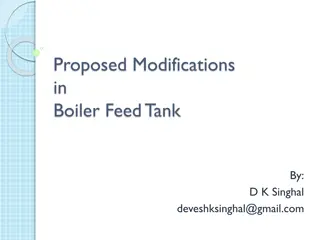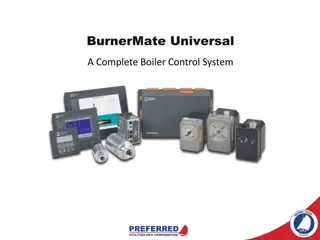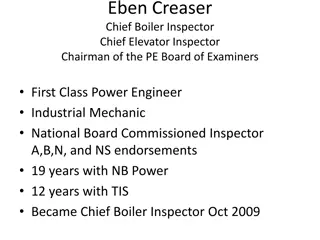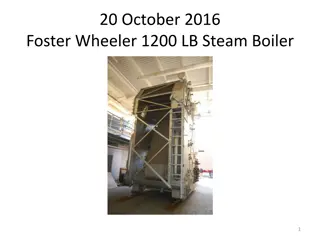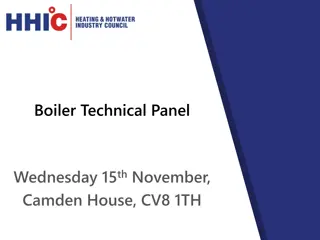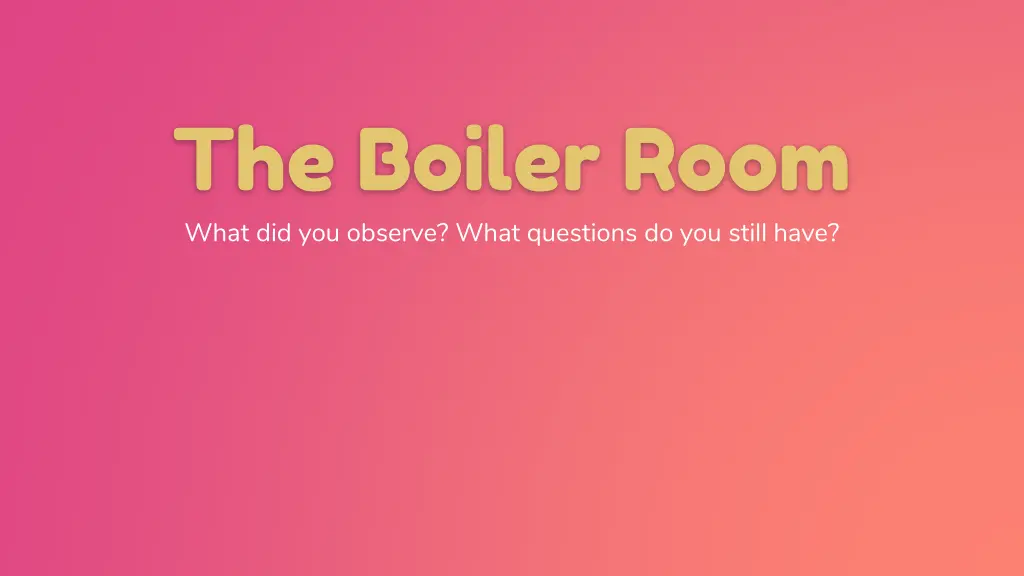
Exploring Water Heating Process in Boiler Rooms
Dive into the intriguing world of boiler rooms as we observe and analyze the heating of water, explore molecular transformations, and understand the energy dynamics at play. Join us in this educational journey of scientific exploration and discovery.
Download Presentation

Please find below an Image/Link to download the presentation.
The content on the website is provided AS IS for your information and personal use only. It may not be sold, licensed, or shared on other websites without obtaining consent from the author. If you encounter any issues during the download, it is possible that the publisher has removed the file from their server.
You are allowed to download the files provided on this website for personal or commercial use, subject to the condition that they are used lawfully. All files are the property of their respective owners.
The content on the website is provided AS IS for your information and personal use only. It may not be sold, licensed, or shared on other websites without obtaining consent from the author.
E N D
Presentation Transcript
The Boiler Room What did you observe? What questions do you still have?
The Boiler Room #2 In the boiler room, fire heats up water. What happens when water is heated? Let s find out! + = ???
Experiment Observe closely as your teacher heats up water in the beaker using fire. What do you observe? Write about and draw your observations! Observational Drawing Accurate Big Colorful Detailed Explained (includes labels) How do you think this experiment connects back to what is happening in the boiler room?
Class Share What did you observe? What do you think is happening? How does this relate back to Hercules boiler room?
The Boiler Room #3 We learned about what happens in the boiler room. Let s zoom in even more to see what s happening! + = ???
Molecules Molecules are the smallest unit of matter. Everything around us is made of molecules, but they are so small that our eye can t see them. How small are molecules? Let s check it out with the Amplify Scale Tool! In science, molecules are shown by tiny circles. In real life, molecules look a little different. split image of drawing of molecules compared to photo of molecules real life drawing What is happening at a molecular level when water is heated to create steam? Let s find out!
Simulation Observe closely as you add heat to the water molecules. What happens? Pay special attention to the speed and size of the molecules as they convert from water to steam. I notice that the speed of the water/steam molecules I notice that the space between the water/steam molecules What do you observe? Write about and draw your observations!
Class Share #2 What did you observe? What do you think is happening? How does this relate back to Hercules boiler room?
Energy Energy is all around us! Energy can be stored in things. It can also be used to make things change and move. We have energy stored in our food. We use that energy when we run and play! Here are some types of energy: Chemical energy: energy that is stored in chemicals and is involved in reactions. Heat (thermal) energy: energy in the form of heat. Mechanical (motion) energy: energy in the form of movement. When do you see these forms of energy in your everyday life? Can you think of other types of energy you see?
Energy Transfer Energy comes in all forms! Some examples are heat energy, electrical energy, sound energy, and light energy. Energy can be transferred, or converted, from one form to another. When we eat food and then move around, we transfer chemical (stored) stored in food to mechanical (movement) energy. When we use a toaster oven, we transfer electrical energy from the wires in the wall to heat energy to toast our bread. Can you think of another time in your everyday life where you see an energy transfer?
The Boiler Room #4 + = + =
Energy Transfer #2 What kinds of energies are involved in this transfer process? How do we know? Word Bank Heat energy Mechanical (movement) energy Chemical Energy I think that...is transferred to...I think this because From the fire, there is...From the steam molecules, there is...The transfer of energy is...to...



